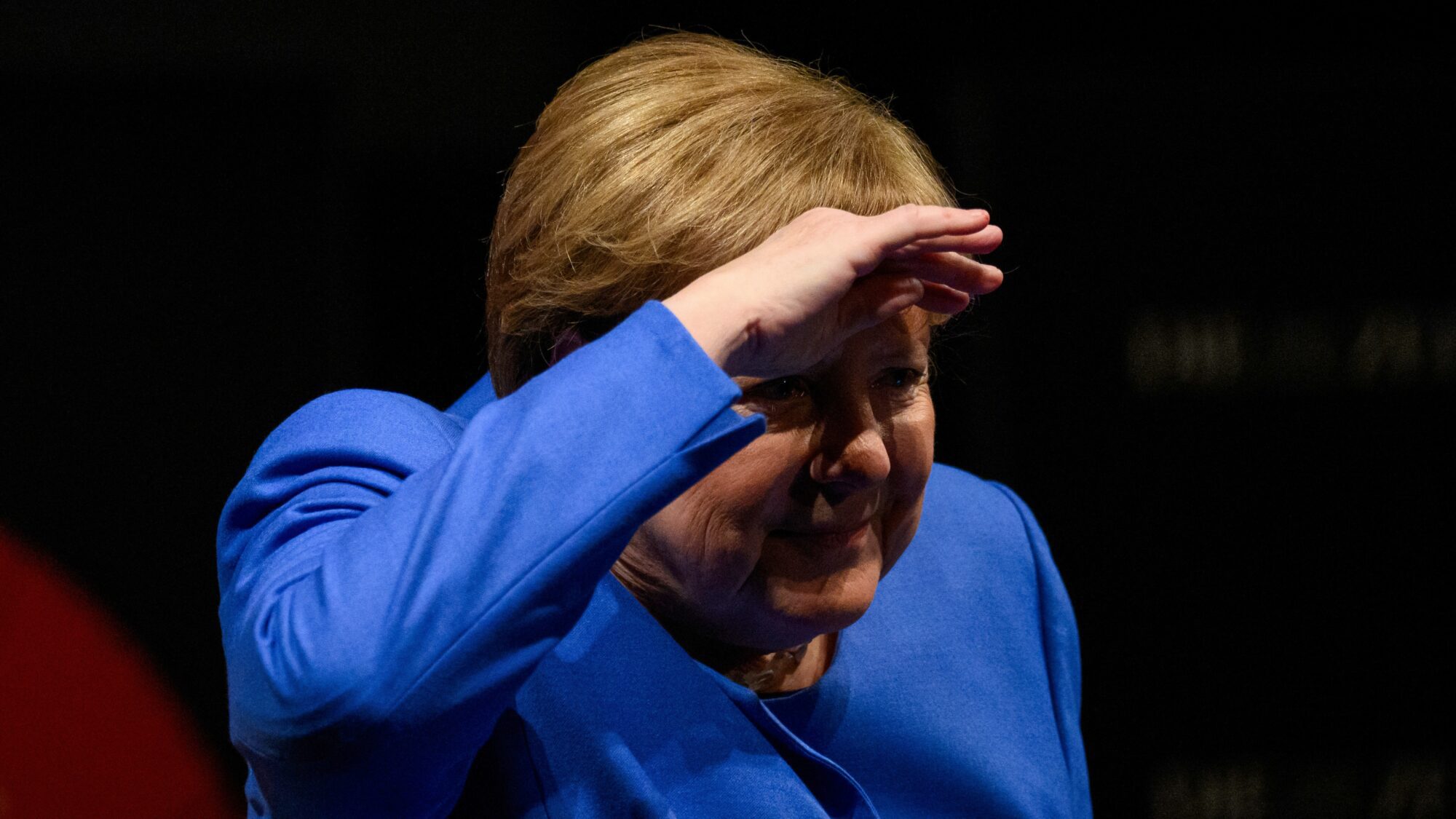
Former German chancellor Angela Merkel on stage as she takes part in a talk hosted by German newspaper Die Zeit at the Deutsches Schauspielhaus theatre in Hamburg on February 5, 2025.
Gregor Fischer / AFP
Former German Chancellor Angela Merkel, the architect of the European migration crisis, has once again criticised the leader of the centre-right CDU party, Friedrich Merz for allowing the right-wing Alternative für Deutschland (AfD) party to support his proposals on toughening asylum laws.
Her criticism comes as a new poll shows that the majority of Germans disagree with her, with almost two-thirds of the country’s citizens wanting illegal and undocumented migrants turned back at the border.
Merkel, who led the CDU (Christian Democratic Union) for eighteen years, and was chancellor for sixteen years until 2021, chided her successor , Friedrich Merz last week, stating that his tactics of cooperating with the AfD was wrong.
She doubled down on her criticism on Wednesday, February 5th, saying in an interview that despite rarely commenting on day-to-day politics, she had felt compelled to speak out: “I felt it was right not to remain silent in such a crucial situation.”
She also urged ”democratic parties” to “talk to each other again,” because it does not look as if any political grouping will get an absolute majority inthe parliamentary elections on February 23rd.
Merkel’s comments come after a week of political turmoil in Germany, in the wake of the CDU and the AfD voting together to pass a non-binding motion in parliament, under which illegal migrants as well as genuine refugees without documents could be turned back at the border.
Friedrich Merz’s move that effectively removed the cordon sanitaire around AfD was prompted by the murder of a 2-year-old by a failed asylum seeker, and a spate of knife attacks committed by migrants last year, many of whom should have been deported but were allowed to remain in Germany.
Instead of focusing on the issue at hand, namely the negative effects of mass migration, leftist parties were more concerned about the fact that the the so-called ‘firewall’ surrounding the AfD was torn down by the CDU.
Meanwhile, the AfD is rising in the polls thanks to its tough stance on migration. According to most polls, it will finish second in the elections, securing around 21 to 22% of the votes, but a recent survey by the Washington D.C.-based Democracy Institute puts the party at 25%, only two points behind the CDU.
Das in den USA ansässige Democracy Institute hat eine Umfrage durchgeführt, die interessante Ergebnisse zeigt.
— Jan (@JanX___) February 3, 2025
Kann jemand dieses Institut einschätzen, v.a. in Bezug auf die Zuverlässigkeit von Umfragen in Deutschland? pic.twitter.com/KBWHh7Tv0z
In her interview on Wednesday, Merkel rejected accusations that her migration policy was politically “misguided,” and refused to take blame for the fact that the AfD has gained in strength, saying “it is no longer my responsibility.”
The fact remains, however, that it was Merkel’s decision to allow around a million migrants into Germany in 2015, which led to the beginning of the European migration crisis. Since then millions of undocumented migrants have arrived in the continent, illegally passing through several safe countries before reaching their desired destination of Western Europe.
The survey found that as many as 52% of Germans welcomed Friedrich Merz’s proposals to tighten migration policy, even by gaining a majority with the help of the AfD, with only 38% of respondents disagreeing with this approach.
In addition, 63% of Germans support the proposal to consistently reject asylum seekers without an entry permit at the borders, with only a quarter rejecting the idea.
The issue of migration appears to be influencing preferences for potential government coalitions. A recent Ipsos survey indicates that support for an alliance between the CDU and the AfD has increased by five percentage points to 23% over the past two weeks, and is now the most favoured among those surveyed.
Meanwhile, a coalition between the CDU and the Greens is favoured by only 5% of respondents, and the grand coalition (CDU-Social Democrats) continues to maintain a low approval rating of 19%, with no signs of improvement.
